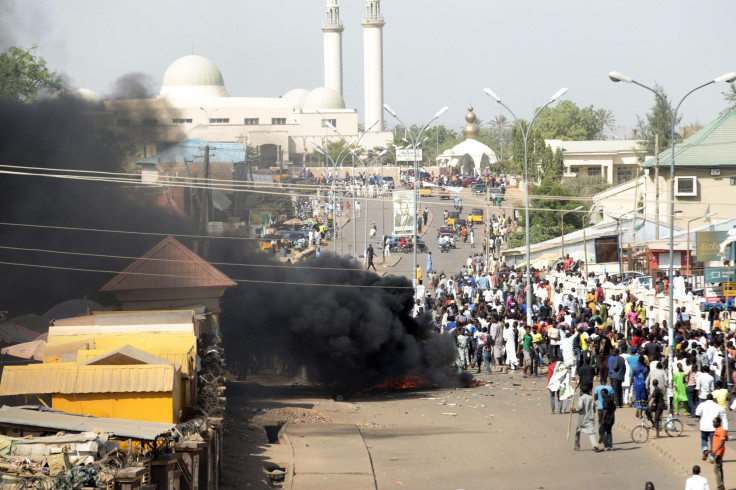Female Suicide Bomber Kills 10 In Nigerian Bus Station

(Reuters) - A female suicide bomber blew herself up at a crowded bus station in the northeast Nigerian city of Damaturu on Sunday, killing 10 people and wounding 30, police said, in a region that is frequently attacked by Islamist militants.
Witness Adamu Muhammad said he heard a loud blast and the people at the Damaturu's central motor park "descended into panic."
No one claimed responsibility for the attack, which bore the hallmarks of Islamist insurgent group Boko Haram, whose use of female suicide bombers has been an emerging trend over the past year.
A police spokesman for Yobe state, of which Damaturu is the capital, put the death toll at 10, with 30 wounded, some seriously.
On Saturday, heavily armed Boko Haram militants attacked and attempted to overrun the northeastern Nigerian city of Gombe but were repelled.
The group's violent campaign for an Islamic state has killed thousands, destabilized the northeast of Africa's biggest economy and is increasingly spilling over into neighbors Cameroon, Chad and Niger. They are now fighting back in a regional effort to crush the militant group.
The insurgency has also cast doubt on the leadership of President Goodluck Jonathan, who is seen as not having done enough to contain it or protect civilians, hundreds of whom have been kidnapped, including scores of schoolgirls.
Nigeria last weekend postponed for six weeks national election set for Feb. 14, citing the security threat from Boko Haram in a move that rattled markets and foreign investors.
Jonathan's rival in the election now rescheduled for March 28, former military ruler Muhammadu Buhari, is seen as the tougher of the two on the security issue, having quelled an Islamist uprising in the 1980s.
Before the Gombe attack the militants warned people not to participate in the elections or risk being killed, according to a leaflet obtained by Reuters from a local resident.
Boko Haram leader Abubakar Shekau has said repeatedly that democracy is un-Islamic.
(Additional reporting by Ardo Abdallah and Joe Hemba; Editing by Mark Heinrich and John Stonestreet)
© Copyright Thomson Reuters 2024. All rights reserved.





















